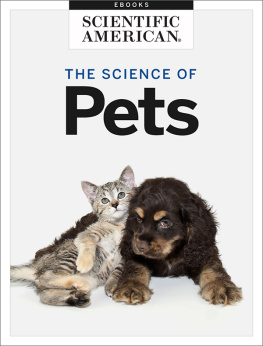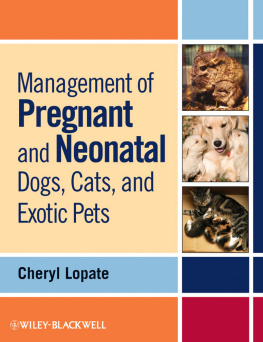
ALSO BY JENNY SMEDLEY:
Past Life Angels
Past Life (meditation CD)
Souls Dont Lie
The Tree That Talked
How to Be Happy
Forever Faithful
Supernaturally True
Pets Have Souls Too
Angel Whispers
Soul Angels
Everyday Angels
Pets Are Forever
Angels Please Hear Me
A Year with the Angels
My Angel Diary 2012
An Angel by Your Side
Soul Mates
My Angel Diary 2013
My Angel Diary 2014
My Angel Diary 2015
Angelic Healing
My Angel Diary 2017
The Big Book of Angel Stories
Published in the United Kingdom by:
Hay House UK Ltd, Astley House, 33 Notting Hill Gate, London W11 3JQ
Tel: +44 (0)20 3675 2450; Fax: +44 (0)20 3675 2451
www.hayhouse.co.uk
Published in the United States of America by:
Hay House Inc., PO Box 5100, Carlsbad, CA 92018-5100
Tel: (1) 760 431 7695 or (800) 654 5126
Fax: (1) 760 431 6948 or (800) 650 5115
www.hayhouse.com
Published in Australia by:
Hay House Australia Ltd, 18/36 Ralph St, Alexandria NSW 2015
Tel: (61) 2 9669 4299; Fax: (61) 2 9669 4144
www.hayhouse.com.au
Published and distributed in India by:
Hay House Publishers India, Muskaan Complex, Plot No.3, B-2, Vasant Kunj, New Delhi 110 070
Tel: (91) 11 4176 1620; Fax: (91) 11 4176 1630
www.hayhouse.co.in
Text Jenny Smedley, 2018
The stories in this book were previously published in Pets Are Forever and Pets Have Souls Too
The moral rights of the author have been asserted.
All rights reserved. No part of this book may be reproduced by any mechanical, photographic or electronic process, or in the form of a phonographic recording; nor may it be stored in a retrieval system, transmitted or otherwise be copied for public or private use, other than for fair use as brief quotations embodied in articles and reviews, without prior written permission of the publisher.
The information given in this book should not be treated as a substitute for professional medical advice; always consult a medical practitioner. Any use of information in this book is at the readers discretion and risk. Neither the author nor the publisher can be held responsible for any loss, claim or damage arising out of the use, or misuse, of the suggestions made, the failure to take medical advice or for any material on third-party websites.
A catalogue record for this book is available from the British Library.
ISBN 978-1-78817-065-9 in print
ISBN 978-1-78817-068-0 in ePub format
ISBN 978-1-78817-069-7 in Kindle format
Interior images: Shutterstock/vvvita

Contents

Jenny Smedley is already a name known to animal lovers worldwide, but for those to whom her name is new, let me explain a little. Her thesis that animals have souls as well as humans can easily be mistaken for a piece of pure sentimentality. But the lightness and humour of many of the anecdotes in this book belie a subtext which is the power behind a very important and growing revolution in our attitude to the other species on Planet Earth. In my work for Animal Welfare in recent months, I have been struck by a very clear insight. We all grow up, and leave home, and are sure that our system of beliefs is entirely our own, supported by verifiable evidence and logical argument. But for the vast majority of us, nothing could be further from the truth. We dont have to look very far into our everyday behaviour to see that it is dominated by habit a whole system of behaviour patterns learned from our parents or guardians in our early childhood, only marginally modified by ourselves, often in response to pressure from our peers in later life.
These behaviours are based on mainly unquestioned beliefs, and many of them relate to the way we treat animals. Many of us eat the flesh of animals daily, reassured by the echoes of our parents voices in our heads: You need your protein Its good for you etc. In spite of mountains of clear evidence that a vegetarian diet is much healthier for our bodies, much more beneficial to the health of our planet and, if adopted by all, would vastly decrease the suffering of animals, these old beliefs, and these behaviours, persist. Ah the suffering of animals? Here is where we are liable to be accused of sentimentality, of anthropomorphism. Many of us in our youth were given open or implied messages such as, Animals dont suffer in the same way we do, or Animals are there for us to use any way we want, or Animals are dirty, or Some animals are vicious, some are pests, vermin must be controlled or Its brave to kill animals. So daily, millions upon millions of farm animals are cruelly abused, millions of animals are used in horrific experiments in the name of making humans live longer, or look prettier, and what is left of our wild animals have no rights can be stalked, trapped, snared, shot or torn apart by men with packs of dogs. Even a quick look at all this by a visiting alien would lead him to the conclusion that the human race, while rather laughably considering itself to be more or less the only important species on the planet, comes out as the most badly behaved. The alien would conclude that our behaviours are mainly governed by instinct, and that, while we are anatomically almost indistinguishable from the other mammals on Earth, we refuse to admit their similarity to us, and refuse to recognize their right to live and breathe in peace. Jonathan Safran Foer, in his book Eating Animals, alerted me to a word I had not encountered before: Anthropodenial the illogical denial of the fact that the animals around us see, hear, feel almost exactly as we do; they also feel pleasure, pain and fear, and it is the denial of these truths which licenses those lacking in empathy to try to justify the cruelty they inflict, or assent to.
All this might seem a long way away from a book which is full of lightness and joy, and insights into animal thinking, emotion and abstract thought. But as you dip into these stories, you will find constant triggers reminders that we need to constantly question the edicts of old ways of thinking. At my Sunday School, at the age of about ten, we were taught only humans have souls only humans can go to Heaven. It bothered me for years it seemed grossly unfair, and I fiercely resisted the notion that my cat might be turned away from the Gates of Heaven. The thought often returns to me even now. Of course, there is no evidence for that teaching at all, and it must have justified countless unnecessary acts of cruelty and neglect of animals through the ages. On every page of this book, I am reassured that its just another old belief which needs to be thrown out of the window, for lack of evidence. No! More than that thrown out because of clear evidence to the contrary, recounted with great skill and dedication in this book.
You can be sure of it. As Ms Smedley says animals have souls, too!
Brian May
All through my life Ive had experiences with animals, which has brought me to right where I am today. Animals have taught me such a lot: about tolerance, about unconditional love and about how in many ways they are teachers for all of us, so you can see I am very strongly connected to the animal kingdom. I have learned from these experiences that all animals have souls, so of course cats and dogs do, too.
Next page

















